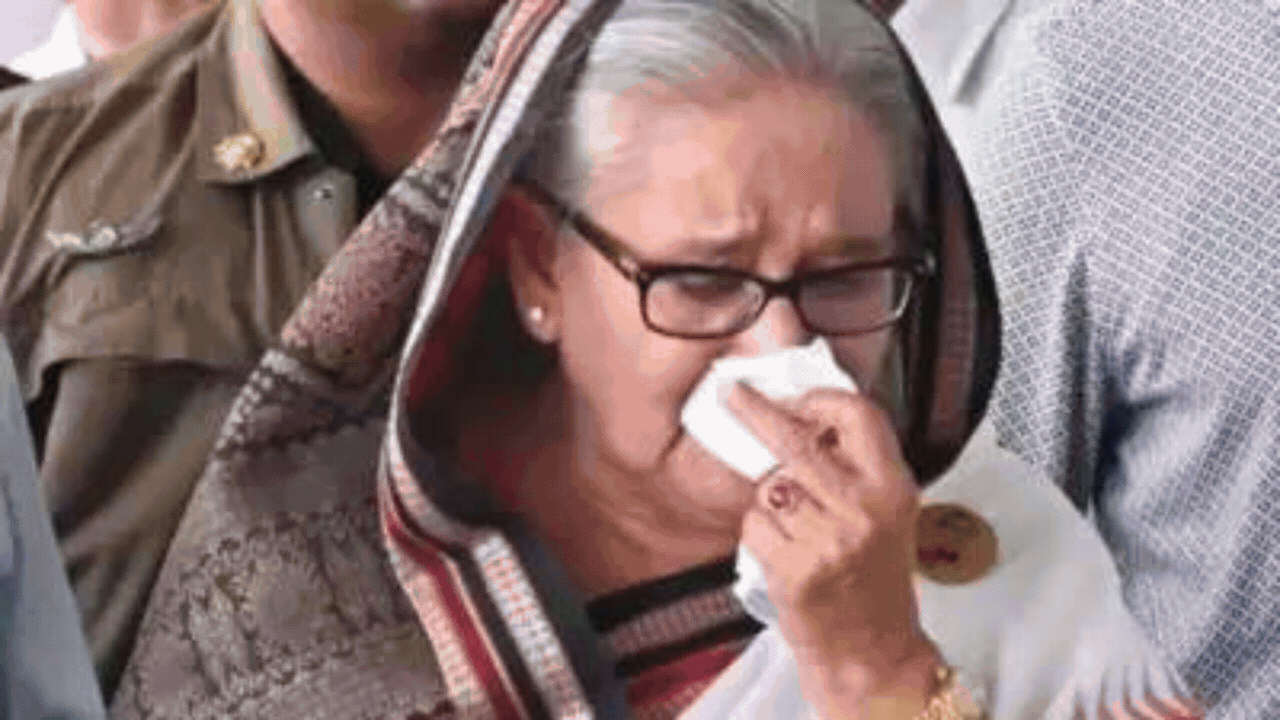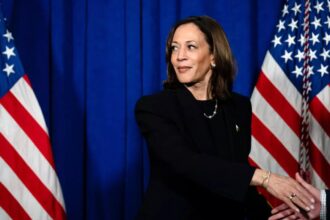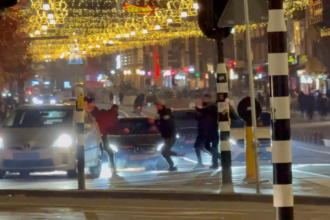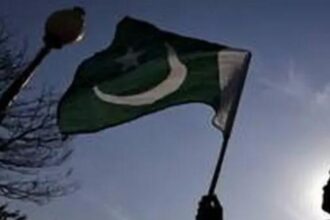Former Bangladesh Prime Minister Sheikh Hasina set up a war crime tribunal, International Crimes Tribunal (ICT), in 2010, to investigate atrocities committed during Bangladesh’s liberation war against Pakistan in 1971. Now, the ICT has initiated three investigations into “mass murder” against her, according to the tribunal’s investigator, Ataur Rahman.
The probes are in response to the unrest that led to Hasina’s departure from the country on August 5, following a month of student-led protests against her 15-year autocratic rule, which resulted in the deaths of over 450 people, many due to police action.
Rahman said that the tribunal is currently gathering preliminary evidence and will later visit the crime scenes.
All three cases were brought by private individuals, and several of Hasina’s former top aides have also been named in the cases, Rahman was quoted as saying by news agency AFP.
The cases involve incidents of violence in Mirpur, Munshiganj, and Savar, which are suburbs or nearby districts of the capital, Dhaka. Additionally, local police units have filed at least 15 cases against Hasina, some of which predate the recent unrest and include charges of murder and “crimes against humanity”.
Under Hasina’s rule, the ICT sentenced more than 100 people to death, including several of her political opponents. The ICT has been criticized by rights groups for not adhering to international conventions. Her government faced accusations of widespread human rights abuses, such as the extrajudicial killing of thousands of political opponents.
The United Nations released a preliminary report on Friday, indicating strong evidence that Bangladeshi security forces used unnecessary force in responding to the student-led uprising. The report stated, “There are strong indications, warranting further independent investigation, that the security forces used unnecessary and disproportionate force in their response to the situation.”
It also mentioned alleged violations, including “extrajudicial killings, arbitrary arrests and detention, enforced disappearances, torture and ill-treatment.” Bangladesh’s interim leader, Muhammad Yunus, has pledged to provide the necessary support to UN investigators.
The probes are in response to the unrest that led to Hasina’s departure from the country on August 5, following a month of student-led protests against her 15-year autocratic rule, which resulted in the deaths of over 450 people, many due to police action.
Rahman said that the tribunal is currently gathering preliminary evidence and will later visit the crime scenes.
All three cases were brought by private individuals, and several of Hasina’s former top aides have also been named in the cases, Rahman was quoted as saying by news agency AFP.
The cases involve incidents of violence in Mirpur, Munshiganj, and Savar, which are suburbs or nearby districts of the capital, Dhaka. Additionally, local police units have filed at least 15 cases against Hasina, some of which predate the recent unrest and include charges of murder and “crimes against humanity”.
Under Hasina’s rule, the ICT sentenced more than 100 people to death, including several of her political opponents. The ICT has been criticized by rights groups for not adhering to international conventions. Her government faced accusations of widespread human rights abuses, such as the extrajudicial killing of thousands of political opponents.
The United Nations released a preliminary report on Friday, indicating strong evidence that Bangladeshi security forces used unnecessary force in responding to the student-led uprising. The report stated, “There are strong indications, warranting further independent investigation, that the security forces used unnecessary and disproportionate force in their response to the situation.”
It also mentioned alleged violations, including “extrajudicial killings, arbitrary arrests and detention, enforced disappearances, torture and ill-treatment.” Bangladesh’s interim leader, Muhammad Yunus, has pledged to provide the necessary support to UN investigators.
Source : Times of India









